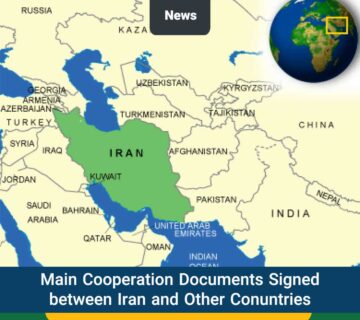In this article you will read:
What is the General Structure of Law of Contract in Iran?
Introduction
In Iran, like any other civilized nation, contract is one of the most common ways to regulate the relations between citizens. Considering the importance of this matter, we want to clarify the contract meaning, its situation and other subjects related to it in Iran’s legal system.
According to Article 183 of Iranian Civil Code, a contract is made when one or more persons make a mutual agreement with one or more persons, on a certain thing.
Iranian Civil Code has mentioned different types of contract. One of the well-established classifications of contracts is as follows:
- Financial and Non-Financial Contracts
- Commercial and Non-Commercial Contracts
- Specified and Non-Specified Contracts
- Revocable and Irrevocable Contracts
- Private Contracts and Public Contracts
Esk Law firm Services
Contract and Commercial Law
What is the Freedom of Contract Principles in Iranian Civil Code?
Iranian Civil Code is inspired by French Civil Law, Belgian Civil Law, Swiss Civil Law and Sharia.
Since these European laws and also the Sharia law recognize the freedom of contract according to which individuals and companies are free to conclude any contract they want, the Freedom of Contract Principle is also accepted in Iran Civil Law.
Article 10 of Iranian Civil Code states that private contracts shall be operative to those who have signed them, providing that these contracts are not explicitly contrary to the law.
These results can be inferred from Article 10:
1. People are free in concluding contracts and nobody can be forced into or prevented from concluding contracts.
2. Everyone is free in choosing the contracting parties and determining its content.
3. Parties are free in choosing the form of their contract and there is no obligation to conclude a contract in form of Civil Code’s specified and unspecified contracts.
4. Contracts are concluded merely with mutual consent of the parties and there is no need for procedural formalities.
5. Parties are free to observe content of contracts and even a court has no right to change the content in order to make them compatible with justice.
6. Effects of contracts are limited to those who have concluded them and, except in limited cases; imposing one’s will on another is not possible.
What are the Requirements of a Valid Contract?
Article 190 of Iranian Civil Code: “For the validity of a contract the following conditions are essential:
- The intention and mutual consent of both parties to the contract.
- The competence of both parties.
- There must be a definite thing which forms the subject-matter
- The cause of the transaction must be lawful.
Intention and Mutual Consent: In Iran’s Law, intention is separated from Mutual Consent and the absence of each one has its own specific effect. The absence of Intention results in nullity of a contract and the absence of mutual consent causes the contract to be inoperative. According to Article 209 of Civil Code: “A contract ratified after the removal of any undue force is binding.”

The Competence (Capacity) of Parties: Contracting parties must be adult, wise and mature. Concluding a contract with minors (some of them) or a non-compos mentis would result in nullity of a contract. Concluding a contract with one who can’t distinguish Right from Wrong (who is not mature but could be an adult or a teenager) would cause the contract to be inoperative.
Definite Subject: The Contract subject must be clarified and definite. Subject means an act or omission. An act could also be conveyance of properties. Generally the subject must be specified in such a way that no ambiguity could be arise or the subject must be determinable at least.
The Cause of Transactions: In Iranian Law, cause of transaction is distinct from cause of obligation. The latter one is the direct purpose of the offeror or offeree and first one is the final desire of the offeror or offeree. The cause of transaction must be legitimate. As long as the cause of transaction is not entered into the so-called “contractual realm” the contract is legitimate and correct.

What is the irrevocability principle of contracts in Iranian Civil Code?
Article 219 of Iranian Civil Code states: “Contracts made according to the law are binding on the parties or their substitutes, unless they have been cancelled by mutual agreement or for some legal reason.”
Just as we can see in this article, the Iranian legislature clearly declares that any contract concluded according to Iran Law is binding unless it has been canceled, either by mutual consent or for a legal reason.
It can also be concluded that mutual consent of the parties and referring to legal reasons are the general ways of terminating a contract in Iran.
What is the Consequence of Breaching a Condition of a Contract?
Generally, there are three types of term in Iranian Law: “Action Term”, “Feature Term” and “Result (conclusion) Term”. The consequences of breaching each one is different as follows:
Feature Term: In Future Terms, the promisor (undertaker) has to provide a product or a work with the defined feature, otherwise the promisee is entitled to terminate the contract.

Action Term: Three steps must be taken in the case of breaching and Action Term;
- Going through litigation in order to demand the enforcement of the contract.
- Performing the subject matter of a condition by promisee at the expense of the promisor.
- In case it is not possible to perform the subject matter by promisor or a third party, promisee is entitled to terminate the contract.
Conclusion Term: This is a term that takes place upon execution of a contract. If such a term is void then the promisee has a right to terminate the contract provided that he didn’t know about the term’s invalidity.
Termination of Contracts
As we already mentioned, there are two general way to terminate a contract in Iran. The first one is the contractual termination and the second one is legal termination.
Contractual termination consists the followings:
- Agreement: “A contract is a creature of agreement. It can be discharged by agreement”
- Rescission: A contract can also be terminated by one of the parties or by mutual consent of both parties.
- Terminator Term; In this case, the contract will be dissolved without requiring any attempt by either side.
- Performance; A contract will be ended upon performing its subject matter.
Legal termination consists the followings:
- Deception in price, defect in subject matter of contract, covering a defect, dividing subject matter of a contract in a way that incur damage to one of the parties, and breach of a term as explained above.
- Frustration; Iranian legislature hasn’t recognized this legal notion yet but it has passed some acts which fortifies the assumption that It desires to do so in the near future.
Our team is composed of highly skilled and versatile lawyers who combine practical experience and academic knowledge of their field. Most of our practitioners have worked in different professional environments, often outside their home jurisdiction.





No comment